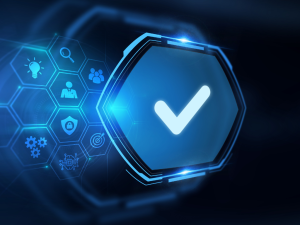Let’s face it — learning tech in 2025 doesn’t always start with a classroom or instructor anymore. It starts with a Reddit thread, a shared Google Doc, or a Discord ping from someone halfway across the world saying, “Hey, I built this — want to see how?”
Welcome to the age of peer-to-peer learning.
For today’s IT learners, the most valuable insights aren’t always coming from top-down instruction. They’re emerging from group chats, community forums, and virtual study pods. These grassroots spaces are where real questions get answered, motivation is shared, and success is collectively built.
Why Peer-Led Learning Works So Well
Peer-to-peer learning isn’t new. But in tech education — especially post-pandemic — it’s seeing a massive resurgence. Here’s why:
- It’s fast. Learners can get real-time help without waiting for office hours.
- It’s relatable. Peers explain things in simple, jargon-free ways.
- It’s motivating. Watching others succeed builds a sense of shared progress.
- It’s flexible. You can learn at your own pace, on your own terms.
And in a field that evolves as rapidly as IT, sometimes your peers are simply more up-to-date than traditional curricula.
Discord Servers: The New Study Hall
Discord has emerged as one of the most popular hubs for tech learners. Whether you’re prepping for CompTIA Security+, diving into ethical hacking, or learning JavaScript from scratch — there’s a server for that.
What makes Discord so powerful:
- Live voice and screen-sharing: Instant walkthroughs and troubleshooting
- Custom channels: Organized by topic, certification, or project type
- Bots and automation: Flashcards, reminders, and daily coding challenges
One popular server, “Zero to Tech,” has over 25,000 members and weekly peer-led study groups that feel more like a community than a course.
Reddit: The Internet’s IT Helpdesk
Reddit remains a go-to for learners navigating tricky concepts or certification questions. Subreddits like:
- r/CompTIA
- r/cybersecurity
- r/learnprogramming
- r/sysadmin
…are packed with peer-reviewed answers, study guides, and even crowdsourced success stories.
Posts like “I failed Security+ twice — here’s what finally worked for me” aren’t just relatable. They’re roadmap gold for others in the same boat.
The vibe is often: “We’re all in this together. Let’s figure it out.”
Study Pods: Accountability, But Make It Friendly
Study pods — small groups who meet regularly to tackle the same topics — are on the rise. Whether organized through a platform or informally on Discord/Slack, these pods:
- Break down complex material week-by-week
- Assign mini-projects or quizzes
- Hold each other accountable for progress
It’s like having a gym buddy — but for tech skills.
Remote study pod platforms like Studdy or 100Devs have grown steadily, offering structured yet flexible spaces for learners to collaborate and grow.
The Human Side of Tech Learning
Why does peer-to-peer learning feel different? Because it brings in what traditional systems often miss — emotional connection.
You’re not just learning bash scripts. You’re:
- Cheering someone on as they land their first IT job
- Admitting when you’re stuck without fear of judgement
- Sharing your wins, setbacks, and imposter syndrome
In an industry where burnout is common, that human touch makes all the difference.
How Platforms Are Adapting
Recognizing this shift, even formal platforms are evolving:
- LinkedIn Learning now has community discussion threads for each course.
- Coursera encourages cohort-based learning where learners interact.
- Ascend Education has begun incorporating peer-review checkpoints and community touchpoints into certain programs.
The line between formal education and peer-to-peer learning is blurring — and that’s a good thing.
Real Learner Story: Sofia’s Network+ Journey
Sofia, 29, was working retail when she decided to switch into IT. Traditional courses felt intimidating. She joined a Discord server instead.
“I wasn’t even sure what subnetting was,” she laughed. “But someone explained it to me like I was five. No shame, just help.”
Through weekly voice chats, shared practice tests, and pep talks before the big exam, she passed Network+ and landed her first IT helpdesk role in four months.
“I wouldn’t have done it without the community,” she says.
How to Start Learning with Peers
Want to tap into this movement? Here’s how:
- Find the right space: Search for Discord servers or Reddit threads tied to your goal.
- Lurk and learn: Read old posts, see how others are asking and answering questions.
- Ask clearly: Don’t say “Help.” Say “Can someone explain this Network+ concept in simpler terms?”
- Give back: Share your wins, struggles, and what worked for you.
The more you give, the more you’ll get.
Final Thoughts: Real Learning Happens Together
Tech is often seen as solitary — headphones on, heads down, solving problems. But in 2025, it’s more collaborative than ever.
Peer-to-peer learning isn’t just a trend. It’s a movement that’s reshaping how we learn, who we trust, and what community really means in IT education.
At Ascend Education, we believe in the power of community — whether it’s a certification cohort or a Discord channel of learners helping each other level up. Because when learners support each other, everyone rises.
If you’re learning tech this year, don’t do it alone. Someone out there already asked your question. Someone else has the answer. And together, you’ll go further.





